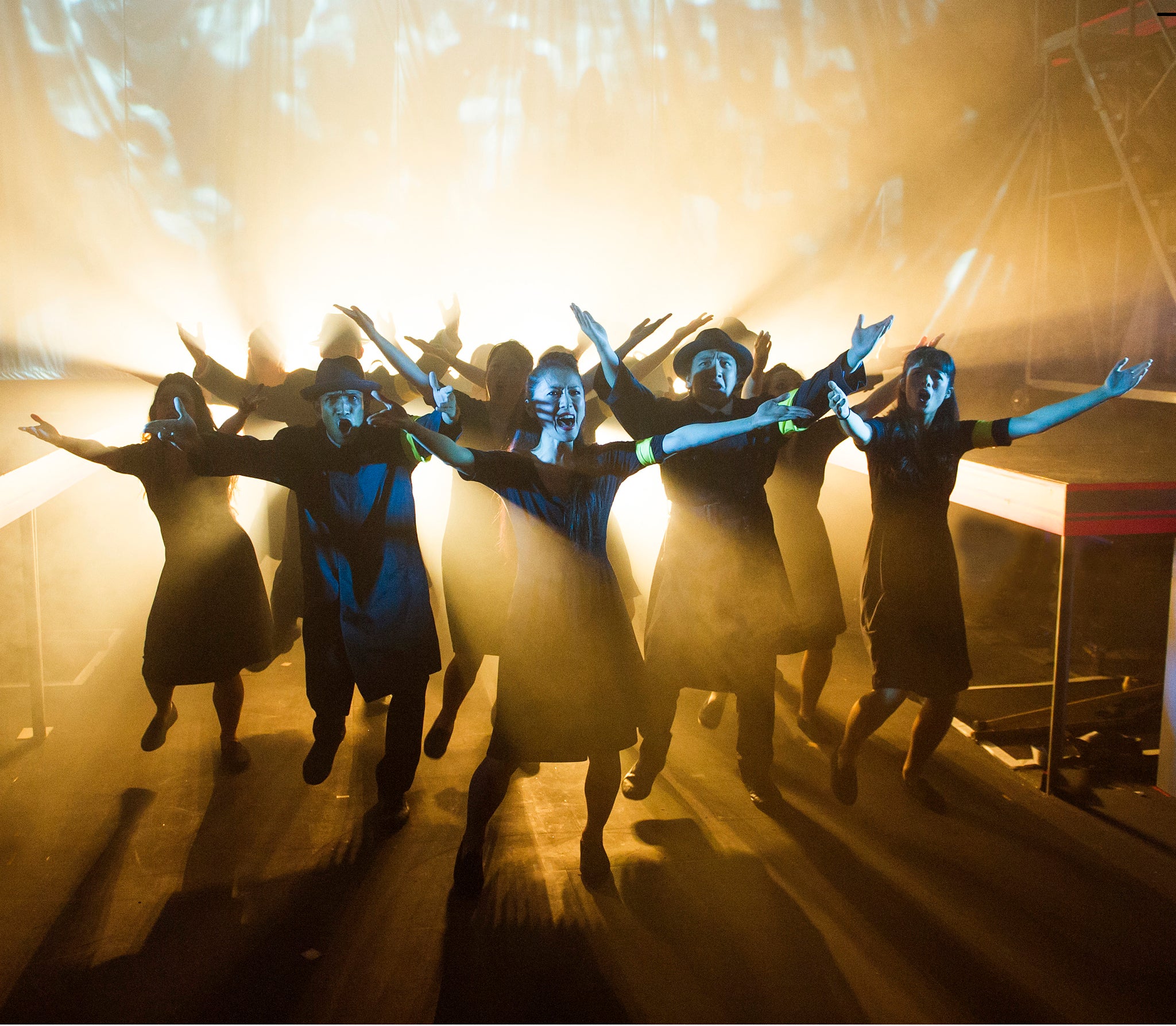Here Lies Love, National Theatre - review: Fatboy Slim and David Byrne disco musical is brilliantly immersive
An auspicious opening for the Dorfman Theatre

Your support helps us to tell the story
From reproductive rights to climate change to Big Tech, The Independent is on the ground when the story is developing. Whether it's investigating the financials of Elon Musk's pro-Trump PAC or producing our latest documentary, 'The A Word', which shines a light on the American women fighting for reproductive rights, we know how important it is to parse out the facts from the messaging.
At such a critical moment in US history, we need reporters on the ground. Your donation allows us to keep sending journalists to speak to both sides of the story.
The Independent is trusted by Americans across the entire political spectrum. And unlike many other quality news outlets, we choose not to lock Americans out of our reporting and analysis with paywalls. We believe quality journalism should be available to everyone, paid for by those who can afford it.
Your support makes all the difference.Fully paid-up shoe fetishists should have it gently broken to them that there is no intricately choreographed fantasia about designer footwear in this disco-musical by David (Talking Heads) Byrne and the DJ Fatboy Slim about Imelda Marcos.
The show about the “Steel Butterfly” of the Philippines is dramatic song-cycle presented in a brilliantly immersive son et lumiere production by Alex Timbers that shows off the National's newly refurbished studio-sized auditorium (now renamed the Dorfman) to spectacular effect with its sheer spatial bravura.
It takes Imelda and Ferdinand Marcos – for a while, the Asian Kennedys, then more akin to the Ceaucescus in their tyrannic corruption – from Imelda's 1950s rise from the humiliatingly poor side of a family of consequence through to the moment in 1986 when – after 14 years of Martial Law and a short entirely peaceful People Power Revolution – the couple were airlifted out of the country by US marines. The rescue is realised here in a juddering frenzy of white light: Close Encounters crossed with a berserk parody of Pentecost. Imelda's epic partiality to shoes was only discovered subsequently (1060 is the attested number found) and it's typical of the strange, admirable rigour of the piece that its makers have forborne to make capital of the phenomenon.
The inescapable comparison is with Evita. Here Lies Love is, to my mind, politically cannier and sharper about the queasy, telling overlap between manipulative-diva worship on the musical and on the political stage.
And it moves to its devastating conclusion through the artfully deployed metaphor of disco – one of Imelda's passions in her spendthrift sojourns in the Big Apple. Overhung by a vast glitterball (she had one in her New York townhouse), the Dorfman has been transformed into a churning, thumping miniature Studio 54.
The packed punters on the ground level are chivvied and manouevred by a live DJ and his helpers around adaptable acting areas: among them, a squatly cruciform central platform, handy for preening photo-ops (Marcos was way ahead of his time here) and two confrontational end-stopped stages, eloquent in the ideological battle between the embezzling dictators and Dean John-Wilson's wonderfully charismatic and vulnerable Ninoy Aquino, the anti-corruption crusader.
Natalie Mendoza, in full-blooded voice is stunning at every stage of Imelda's development, especially when the infidelity of Mark Bautista's smugly sexy Ferdinand (cue a factory-belt of identical blondes in black scanties) turns her into the glazed, self-deceived icon who imagines that she is both star and slave to the people.
How lovely for the destitute living in shanties, it was felt, to have such a mega-groomed ambassadress. Fascinating contemporary footage and cartoon symbols hurtle past on the surrounding strip-screens. The defiant hedonism of the disco beat is gradually darkened and complicated – as in the seriously eerie prison-scene number where Imelda (a former flame) gives Ninoy his freedom, a perverted politically self-interested gesture.
The ground-level clubbers are commandeered to stand in for the Filipino crowds at rallies and the like – the discomfort in that disjunction gradually taken on board especially in the reverberant, chastened hush of the close when, the disco-beat now discarded, we listen to eye-witness guitar-accompanied testimony from a People's Revolutionary that moves you to quiet tears.
Playing at 90 minutes straight through, this is an auspicious opening for the Dorfman.
To 8 January; 0207 452 3000
Join our commenting forum
Join thought-provoking conversations, follow other Independent readers and see their replies
Comments